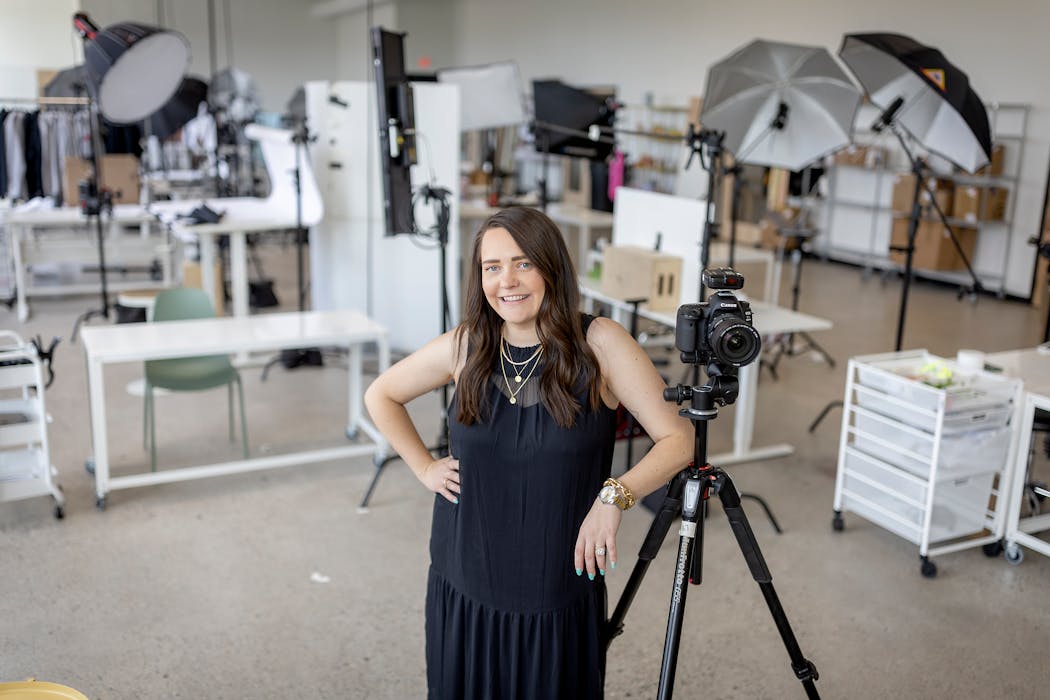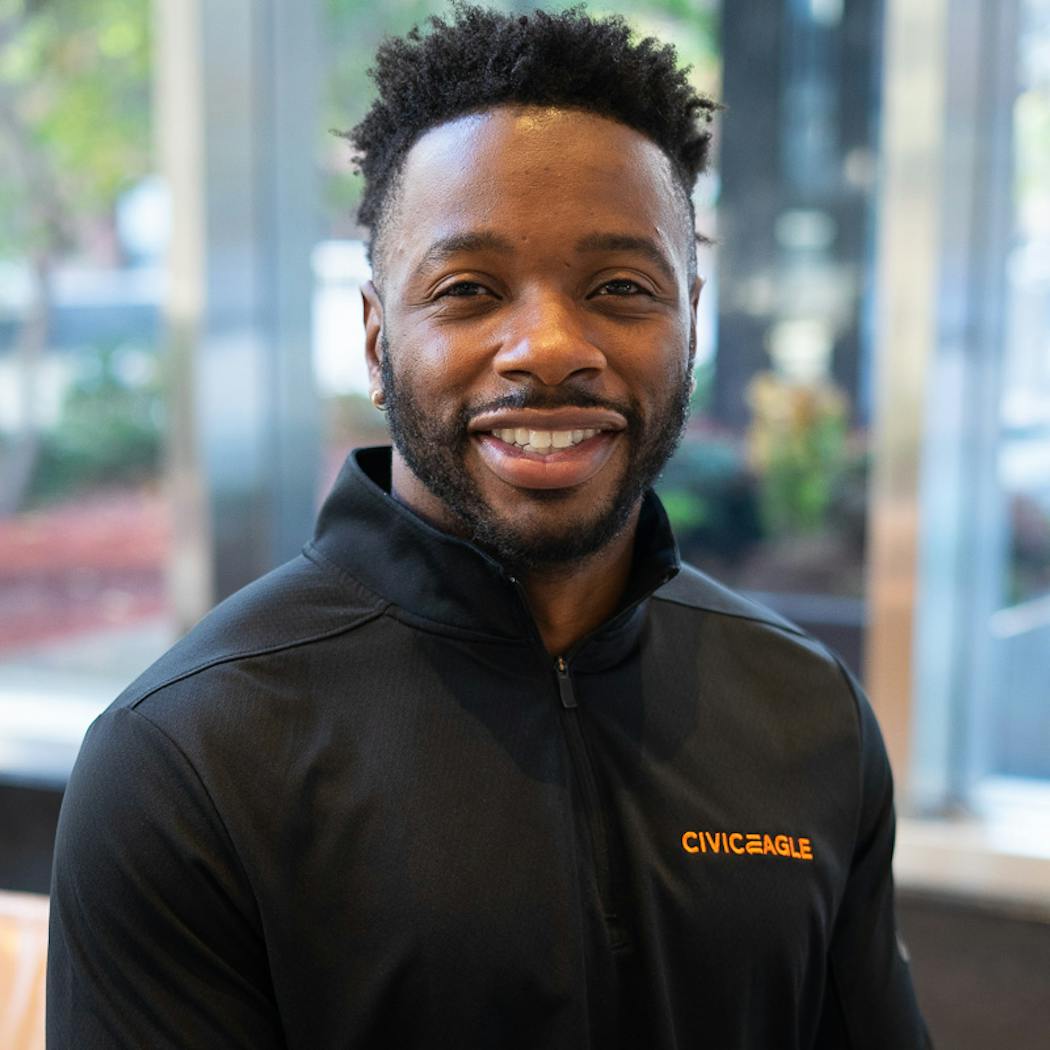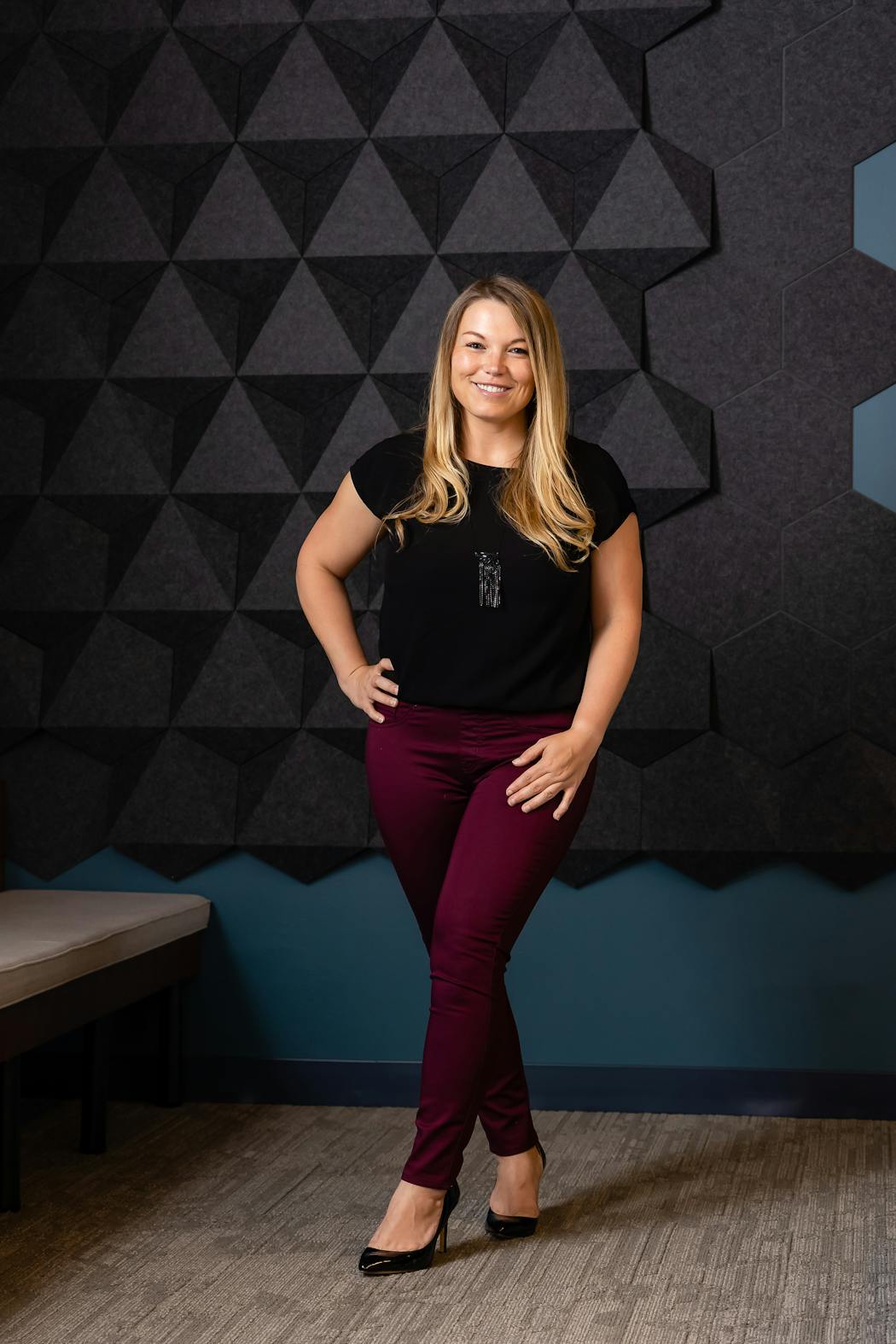hey are sometimes brash. They are not afraid to share opinions — even political ones. They think of employees as much as finances.
These are some of the ways younger bosses say they are redefining how a company leader looks, operates and thinks, hopefully for the better.
Millennials and Gen Zers have been pushing envelopes since they entered the workforce. As employees, they wanted more purpose in their work lives and demanded more personal development and flexibility.
Now they have the microphone.
Here are how three outspoken entrepreneurs define their style of leadership.
Liz Giorgi, Soona
"I really believe in being who you are publicly that you are privately"
Liz Giorgi, the co-founder and chief executive of Minneapolis-based visual-content production company Soona, has built a national following among entrepreneurs, chronicling the daily grind of running a fast-moving startup on social media.
Some of her posts, like those of other executives, mark her company's success. But, unlike many leaders from previous generations, she's not afraid to be outspoken about her opinions on politics, gun violence, sexism and abortion. Her posts poke at entrepreneurs to break the status quo and push back at biases or inequities she sees.
"When you feel you had to steal the seat at the table, you want to use what little real estate you have to shed light on the things we need to make better so there can be more seats at the table," Giorgi, 36, said.
Her message: It's important for your public persona to mirror who you are in private.
"I really believe in integrity and I really believe in being who you are publicly that you are privately," she said. "I think there's been a lot of generations of leaders who have lived dual lives as different types of people both publicly and privately. I don't have the energy, frankly."
Giorgi and Hayley Anderson started Soona in 2019. They have since raised $51 million from investors and hired nearly 200 employees working in Minnesota, Texas, California, Washington and Colorado.
During the pandemic, they created a virtual-content studio, which led to 400% growth in 2020 and another 300% in 2021.
Giorgi's experimentation with leadership and ideas spreads to the way she runs her business. For example, she does not hire based on résumés.
As a creative company, Soona managers instead look at portfolios of work. Giorgi admits that's not an easy thing to teach — people are trained to hire based on experience in certain roles — but thinks it is important to break stereotypes of who fits what jobs.
To Giorgi, a healthy mix of empathy, activism and creative expression is what makes the culture she and Anderson built at Soona strong.
Damola Ogundipe, Civic Eagle
The workforce is "looking for compassionate leaders and leaders that are self-aware"
Yes, it's important to meet financial goals. A company won't survive without doing that. But developing employees is just as important to Damola Ogundipe and a cohort of like-minded young leaders.
"We are much more self-aware, more conscious and we value EQ [emotional intelligence] more as well," said Ogundipe, the founder and chief executive of Civic Eagle, a Minneapolis software startup that tracks legislative bills and public policies. Comcast and Google are among users of the software designed to increase government relations and advocacy work.
Since 2015, Civic Eagle has raised close to $15 million from investors. Ogundipe, now 33, anticipates growing from 20 to 35 employees by the end of the year.
Prior to starting Civic Eagle in 2014, Ogundipe was a consultant in the health care industry. His managers seemed to only care about work production, he said.
Ogundipe said that didn't seem like the best way to build confidence, loyalty or productivity. So as he built his senior leadership team at Civic Eagle, 25 to 40% of his interview questions were designed to assess self-awareness, a person's ability to grow and their emotional intelligence.
"It's really important for those people to be able to hire and retain talent because that's what the workforce is looking for," he said. "They're looking for compassionate leaders and leaders that are self-aware."
Kristen Denzer, Tierra Encantada
"It's important to gather a lot of perspectives when making decisions"
Minnesota's child-care crisis has been accelerating for years — and it's no secret that pay is one of the top reasons that the state has lost 37% of its child-care providers since 2010.
When Kristen Denzer was looking for day care for her children, she found most centers were too conservative and that the pay gap between owners and workers was unacceptable to her. So she set out to change that.
The Disrupters
First-generation Somali American nurses bridge care gap
Minnesota’s new business leaders writing own rules
They launched successful startups. Here’s how they did it
Minnesota couple reworked hardware store. Now what?
How Best Buy exec embraced unconventional thinking
Baking mix she craved didn’t exist, so she cooked up a company
Twin Cities real estate veteran’s experience fed innovation
Denzer wanted to create an inclusive center — with a diverse staff — where students could read books that include two moms or dads and people of color and speak different languages. And she wanted employees to feel comfortable being themselves, tattoos, piercings and all.
"I wanted to create jobs that were careers," she said.
So, at 28, Denzer started Tierra Encantada, a Spanish immersion child-care center. That was in 2013.
The company has grown to more than 200 employees across nine corporate locations in Minnesota, Illinois and Virginia, with franchised locations opening in Texas, Alabama and North Carolina.
Denzer now offers a 401(k) with match, medical, paid holidays, dental benefits and parental leave for parents, which makes the Tierra Encantada franchise chain rare. Fewer than 5% of child-care centers nationally offer those benefits.
She raised tuition at the centers this year to help maintain that benefit level.
Denzer, now 37, is among an increasing number of entrepreneurs who believe empowering her employees through raising their quality of life allows them then to be better contributors at the workplace. Millennial and Gen Z workers have responded to several surveys saying they want their work to have purpose, along with basic benefits and competitive pay.
Denzer tries to make that happen — and tries to include all employees in decisions. She takes to heart experiences she had in a previous job where her boss took credit for her work as lessons in how not to lead.
"I have my thoughts on things, but I'm one person," said Denzer, the 2022 Small Business Administration's Minnesota Small Business Person of the Year. "I think it's important to gather a lot of perspectives when making decisions."




